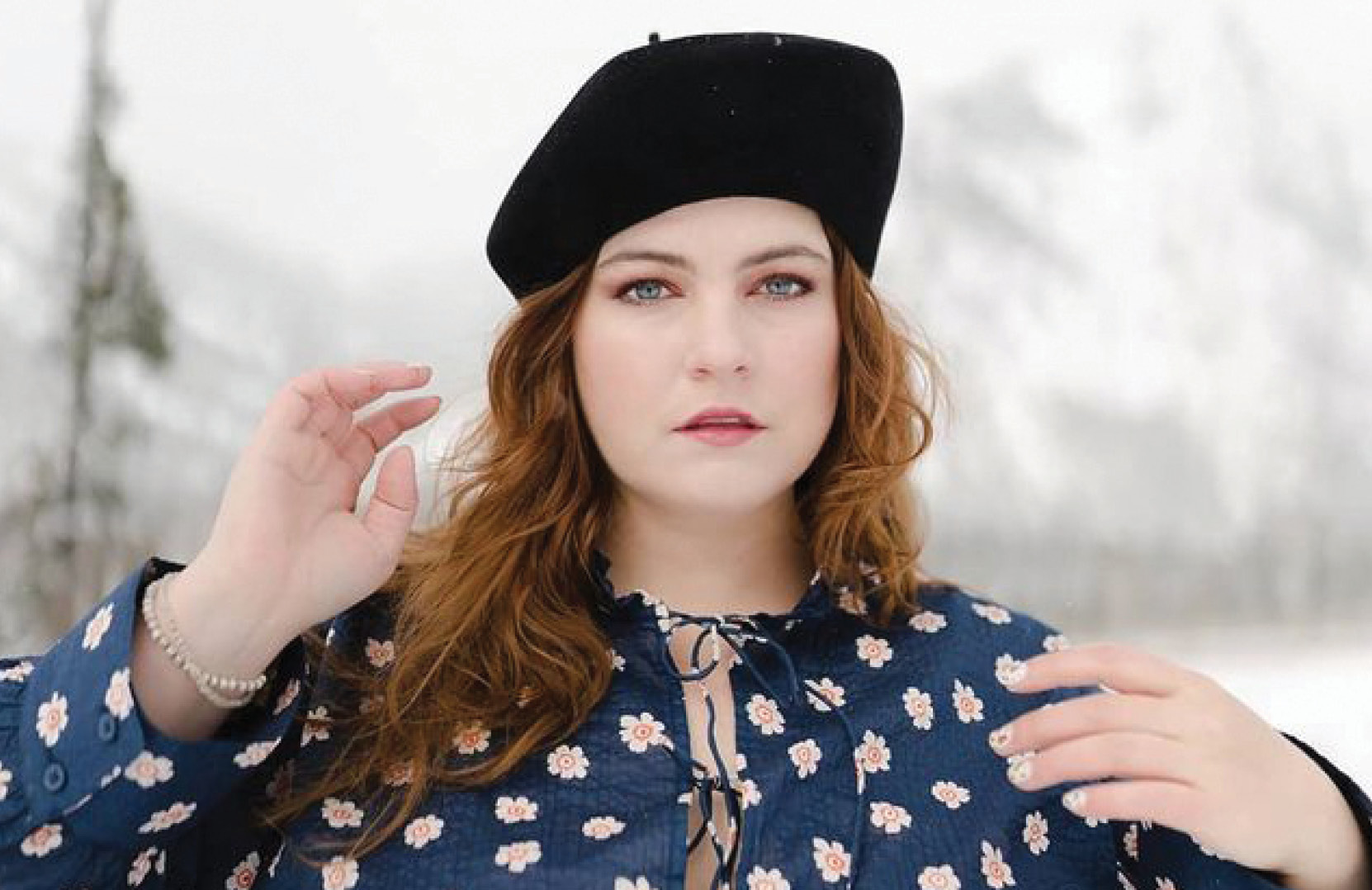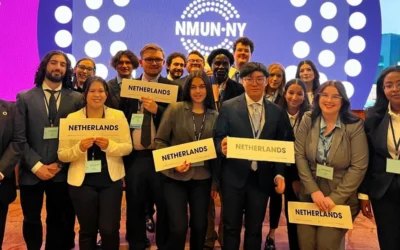Marielle Terhart has become the sustainable fashion it-girl, not by mirroring the ones she once dreamed of becoming, but by making a space for herself — and others like her — next to them.
Terhart is an Edmonton-based influencer whose content caters to plus-size people interested in sustainable fashion, or “slow fashion for fat bodies,” as her Instagram bio reads.
If you’re an avid follower of Terhart, you’ve seen her dance freely in her lofty bedroom, address societal wrongdoings with edgy yet eloquent monologue-style rants, and express gratitude for brands prioritizing plus-size bodies and the planet, all while dressed in her signature, elevated casual-cool ensembles.
On her own quest to find sustainable clothing, Terhart realized how few options were available to her as a plus-size person. Not only were options scarce, no one seemed to be talking about that scarcity. So, she took it upon herself to start, and over time, Terhart has evolved into an educator for consumers and for brands.
“That shift really happened for me when I realized how few people were talking about the intersections between ethical fashion and being fat, and how needed inclusivity is as a part of that social justice movement,” she said.
Terhart has built up a plethora of online resources for plus-size people, some of which are paywalled using Patreon, an online membership platform commonly used by content creators. One resource available at no cost is The List, a round-up of “ethically made brands that dared expand past a size 18,” as stated on her website. It includes a handful of brands that Terhart has worked with to expand their size ranges.
Terhart acts as a general consultant for brands — providing insight on products, plus-sizing, and marketing efforts. Pre-pandemic, Terhart had jetted off to different cities to meet with brands and fit-test their products. But, like many others, Terhart’s work looks a little different right now.
“Currently, because of COVID, I have brands send me garments and I do fit testing on webcams and talk through how the garment’s fitting and where changes need to be made,” she said.
“Super glamorous,” she quipped about her webcam try-ons with a laugh and an undeniably sarcastic tone.
Terhart has undoubtedly influenced the plus-size sustainable fashion space. Surprisingly, she is still one of few who are doing so. “Even today, there aren’t a ton of plus-size ethical fashion influencers,” Terhart said. “It’s a really niche demographic. I think there’s maybe 10 of us.”
The niche may be small, but Terhart’s impact has been anything but.
Terhart has amassed an online audience of 45,000+ followers, one of which happens to be a fashion editor at Vogue. Said fashion editor approached Terhart about penning a story for the publication. She jumped at the opportunity. “I had a story idea about loud maximalism — loud fashion for fat bodies,” said Terhart. “I pitched it to her and she loved it.”
On Jan. 19, 2021 Terhart had an official Vogue byline. Her article, “The Future of Plus-Size Sustainable Fashion is Bright,” signified a change in a longstanding industry built on exclusivity.
“Someone reading the word ‘fat’ as a neutral body descriptor in Vogue means a lot,” Terhart said of the change. “That is a really cool, really big thing. That is moving the needle. That is fashion brands no longer being able to say fat people don’t wear high-end fashion because, oh no, we’re in Vogue.”
The highly coveted fashion magazine has faced criticism in the past for excluding marginalized groups and glorifying thinness. But, as of late, Vogue appears to be making an effort to broaden their horizons.
“I kind of don’t care,” Terhart said when asked if she regarded the effort as performative or genuine. “Even if fashion is becoming more inclusive from a performative starting point, it is a bar they’re going to have to keep upholding. One day it won’t be performative, it will just be part of the conversation and to me that’s positive.”
Even as it becomes a bigger part of the conversation, and more plus-size sustainable fashion brands emerge, Terhart still feels the constraints of being a sustainable fashion devotee.
Fashion brands — sustainable or otherwise — rely on consumption to survive and grow, and it is widely agreed upon that overconsumption is posing serious threats to our planet.
“I think the number one way we can help our planet when it comes to fashion right now is just to consume less of it,” she said, but not without recognizing that it is easier said than done.
“It’s hard because fashion is a way we express ourselves, and who we are as an individual changes all the time,” she said. “What I would wear five years ago is different from what I want to wear now.”
“On top of that, we’re constantly being marketed to,” she continued. “There are constantly new trends.”
Rather than jumping on every new trend that makes its way into your news feed, Terhart recommends picking only one, opting for vintage, or using other means to express yourself like makeup.
“I’m getting deep into makeup. It’s a much smaller way to buy into trends,” she said. “I’m wearing two different colours of eye shadows right now and I feel really cool.”
A challenge Terhart finds herself grappling with is being an influencer, while also being sustainable. Influencers have essen tially taken on a marketing role for brands, sharing products and services with their online audiences, in hopes to make some form of commission through content creation or affiliate sales. In most cases, influencers make money when their followers spend money.
“The way almost every influencer makes money, including ethical fashion influencers, is talking about clothing other people can buy now. I will never make money from talking about clothing I bought five years ago because no one can buy it,” she said. “It’s a difficult quandary and something I find extremely challenging.”
But, Terhart presses on, fuelled by her desire to protect the planet and help others who face similar challenges to her.
“I think it’s really important work and conversations that need to be had to drill down on fashion consumption and the conse quences of fast fashion on our environment,” she said. “I am all for whatever means necessary it takes to make marginalized bodies feel safer and wanted in fashion spaces, and especially if those conversations include ethical and sustainable fashion.”





0 Comments